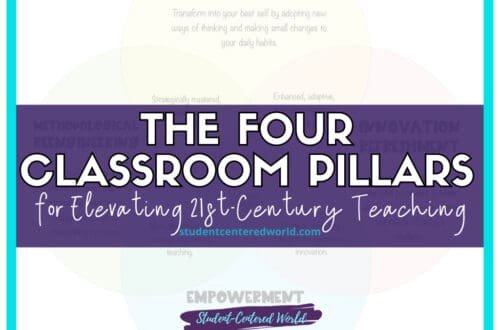What New Generational Wealth is and How Great it Can Be
I read a very interesting comment the other day that discussed what is considered new generational wealth. Traditionally, we know that generational wealth is monetary and passed down through families. However, the concept of new generational wealth is all about breaking toxic cycles in life. Concepts like financial literacy, mental health, and core family values are now considered equally important as the assets being passed down. In this context, new generational wealth means equipping future generations with more than just money—it means fostering resilience, healthier relationships, and a better understanding of financial decision-making.
As the world continues to evolve, so do the definitions of wealth and success. The baby boomer generation, which had long been focused on financial accumulation through traditional means like real estate investments, stock market portfolios, and long-term financial planning, is passing the baton to the next generation. However, this transition—what some experts call the great wealth transfer—involves much more than just the movement of money. It’s about the movement of knowledge, values, and mindsets from older generations to younger generations and breaking toxic cycles and systems within those transactions.
The Evolution of Generational Wealth: More Than Money
Historically, generational wealth was about accumulating and passing down financial assets like homes, stocks, and savings. Wealthy families would work closely with financial advisors, ensuring their money was properly managed and transferred efficiently through estate planning and other tools. Institutions like Merrill Lynch and Bank of America Private Bank have long helped high-net-worth investors with their asset allocation and trust fund management, keeping wealth growing through traditional stocks and private equity.
However, recent years have shown a shift in what both older and younger generations view as wealth. Today, younger heirs—such as Gen Z heirs and millennials—are prioritizing health, well-being, and family values alongside financial security. With the growth of social media and increased awareness of mental health and work-life balance, more families are beginning to focus on emotional intelligence and breaking the cycles of toxic behaviors.

Breaking toxic cycles is essential for ensuring the well-being and success of future generations. These cycles—whether financial, emotional, or behavioral—often perpetuate patterns of poor decision-making, stress, and instability within families. By addressing and disrupting these cycles, we not only prevent harmful habits from being passed down but also create a foundation where future generations can thrive. Teaching concepts like financial literacy, emotional resilience, and healthy communication equips young people with the tools to make better choices for themselves and their families.
Breaking these cycles promotes mental and financial health, enabling future generations to cultivate a legacy of growth, stability, and success. This shift ultimately empowers individuals to rise above inherited challenges and create healthier, more prosperous lives for themselves and those who follow.
While financial assets remain a key component of generational wealth, younger generations are interested in much more. A survey of consumer finances reveals that family members from Gen X to Gen Z are pushing for a broader understanding of financial planning. This goes beyond managing money; it includes equipping future generations with the tools and knowledge needed to make smart financial decisions. Wealth management firms and financial advisory services are seeing the rise of clients who want to impart lessons about financial decision-making and responsibility, as well as how to handle new asset types like digital assets, cryptocurrency, and sustainable investments.
The Great Wealth Transfer: A Turning Point for Families
We’re on the cusp of the largest wealth transfer in history, sometimes referred to as the Great Wealth Transfer. The Baby Boomer generation, who grew up with traditional investment products like bonds and real estate investments, is expected to transfer trillions of dollars in assets to younger heirs over the next decade. This unprecedented event is already having significant impacts on how financial planning is approached in the United States.
According to Cerulli Associates, an investment management research firm, this wealth transfer will influence every sector, from financial institutions to non-profit organizations and family offices. The transfer isn’t just about giving next-generation family members financial assets; it’s also about making sure these younger generations are prepared to manage and grow their family’s wealth.
One critical area of concern for financial advisors is ensuring that the next generation understands the best practices for wealth management. Estate planning is an important aspect of this, but so is financial literacy. Wealthy families are increasingly hosting family meetings, where older people and younger people alike discuss investment decisions, asset allocation, and the importance of core values when it comes to family wealth. Family businesses often come into play as well, with families discussing how best to ensure a smooth transition between the first and second generation of a family-owned company.
As wealth moves from one generation to the next, financial literacy becomes a key component in this process. The next generation—whether they are younger investors from Gen Z or Generation X heirs—are inheriting not just wealth, but also the responsibility of understanding investment management, tax efficiency, and how to make sure their family’s wealth continues to grow for future generations.
However, the focus of the younger generations is much greater than the financial aspect; instead, they are focusing on the other areas of life that they wish to stop with them, allowing future generations to move forward without the same emotional debt they did.
Breaking Cycles: Financial Literacy as the New Generational Wealth
Perhaps the most important aspect of new generational wealth is the focus on breaking harmful cycles that may have affected prior generations. For many families, this means having open discussions about money, emotions, and empathy, something that previous generations often avoided. Younger generations are looking to break away from the secrecy and stigma surrounding problems that might have existed in their family.
By focusing on these aspects of life and determining which struggles they do not want to further, families are ensuring that the next generation can make informed, responsible decisions and have a better foot mentally moving forward. This goes beyond just handing over a trust fund or investable assets—it means equipping the younger generation with the tools to make positive impacts on their own lives and the lives of future family members.

Additionally, the focus on health and well-being as part of the family wealth conversation is critical. Many families are recognizing that financial security also involves ensuring that family members have the support they need for physical and mental health. As baby boomers age and more people enter assisted living facilities, families are planning not just for financial security but also for the overall well-being of their loved ones.
The Future of Generational Wealth
As we look toward the future, it’s clear that the Great Wealth Transfer will shape the next decade in powerful ways, and not just financially. The intersection of financial assets, family values, and emotional well-being will create a new model for what it means to be wealthy. More than ever, u.s. households are recognizing that wealth is not just about how much money you have—it’s about how well-rounded you are as a person with an eye toward the future.
In recent years, the rise of younger heirs and their interest in socially responsible investing, digital assets, and financial literacy has created a cultural shift that will have significant impacts on how wealth is transferred and preserved. As families and financial institutions work together to prepare the next generation for these challenges, the concept of generational wealth will continue to evolve.
Ultimately, the goal is to ensure that future generations inherit not just money but also the values, knowledge, and support systems needed to thrive in a rapidly changing world by leaving behind the problems that no longer serve them. Breaking cycles, building resilience, and fostering open communication about money and values are all part of the new model of generational wealth—a model that prioritizes the well-being of family members for generations to come.
The Importance of Understanding This in the Classroom
Understanding the concept of new generational wealth is crucial in the classroom because it equips teachers to help students with essential life skills that extend beyond traditional academic subjects. By integrating aspects of emotional intelligence and critical thinking about long-term goals into education, teachers can help students break harmful cycles and foster healthy habits from an early age. This knowledge empowers students to make informed decisions, not only about their finances but also about their future well-being.
In a rapidly evolving world, where great wealth transfer and new types of wealth are redefining success, understanding these dynamics prepares students to thrive and make a positive impact in their personal lives and communities.
As the concept of generational wealth shifts, so too do the expectations parents have for what is important in life. Parents are increasingly valuing holistic approaches to wealth and success, recognizing that financial security alone is not enough to ensure a fulfilling life for their children. This evolving mindset emphasizes the importance of mental and emotional well-being, financial literacy, and the development of strong core values. Parents are no longer solely focused on leaving behind money or material assets but are instead prioritizing the knowledge and skills their children will need to navigate an uncertain world.
The rise of social media and heightened awareness of mental health issues have also influenced parents’ priorities, prompting them to teach their children the importance of balance, resilience, and meaningful life choices. This shift in parental expectations reflects a broader understanding that true success comes from both financial stability and the ability to lead a well-rounded, purposeful life.
Adding to the New Generational Wealth as a Teacher
Teachers can make breaking toxic cycles and fostering financial literacy a priority in the classroom by integrating these concepts into the curriculum in subtle, age-appropriate ways that align with academic goals. For example, they can introduce discussions on financial decision-making through real-world math problems, teach emotional intelligence and conflict resolution through group projects, or explore critical thinking in social studies lessons on societal systems. By framing these topics within broader educational objectives, teachers avoid overstepping while still providing students with valuable life skills.
Teachers can also create a supportive environment that encourages open communication and self-awareness, allowing students to reflect on their personal and family experiences without feeling judged. In doing so, they help students understand the importance of breaking negative cycles in their own lives and preparing for a healthier, more successful future.
Conclusion
In a day and age where student apathy seems to be our biggest headache, it’s no surprise that this fundamental change stems from a new generation deciding to step up and be different. The shift away from traditional definitions of wealth and success reflects a growing awareness that emotional well-being and breaking harmful cycles are just as crucial as academic achievement and later financial growth. As educators and parents embrace this change, they are fostering a culture that prioritizes holistic growth, resilience, and responsible decision-making.
By empowering students to take ownership of their future, both financially and personally, we are equipping them with the tools they need to create meaningful, fulfilling lives. This evolution in priorities offers hope that future generations will not only break free from the toxic patterns of the past but also thrive in ways that make a lasting, positive impact on the world around them.
Stop Driving the Teacher Struggle Bus
Are you struggling with student engagement, apathy, or keeping your class on track?
💫💫 There’s hope! 💫💫
If you’re ready to take the first step towards reviving student engagement and transforming your classroom, I invite you to join me for my free workshop “Reversing Student Apathy” designed to equip educators with innovative strategies that work.
This free teacher workshop offers educators a valuable opportunity to explore and address student apathy. By examining its causes and discussing strategies, participants will learn how to make meaningful changes in their teaching methods that are actually working. The sessions are engaging and collaborative, allowing educators to share experiences and develop a collective approach to improving student engagement.
Highlights include:
- Understanding the roots of student apathy and its impact.
- Strategies for enhancing classroom dynamics.
- The importance of educator-student relationships.
- Innovative teaching approaches for today’s students.
By the end of the workshop, you will not only understand what you need to accomplish to stabilize the 4 pillars of your classroom, but you will also walk away with 5 tangible ideas to try in the classroom the very next day.
Join today to be part of the solution to reigniting student enthusiasm and engagement.





